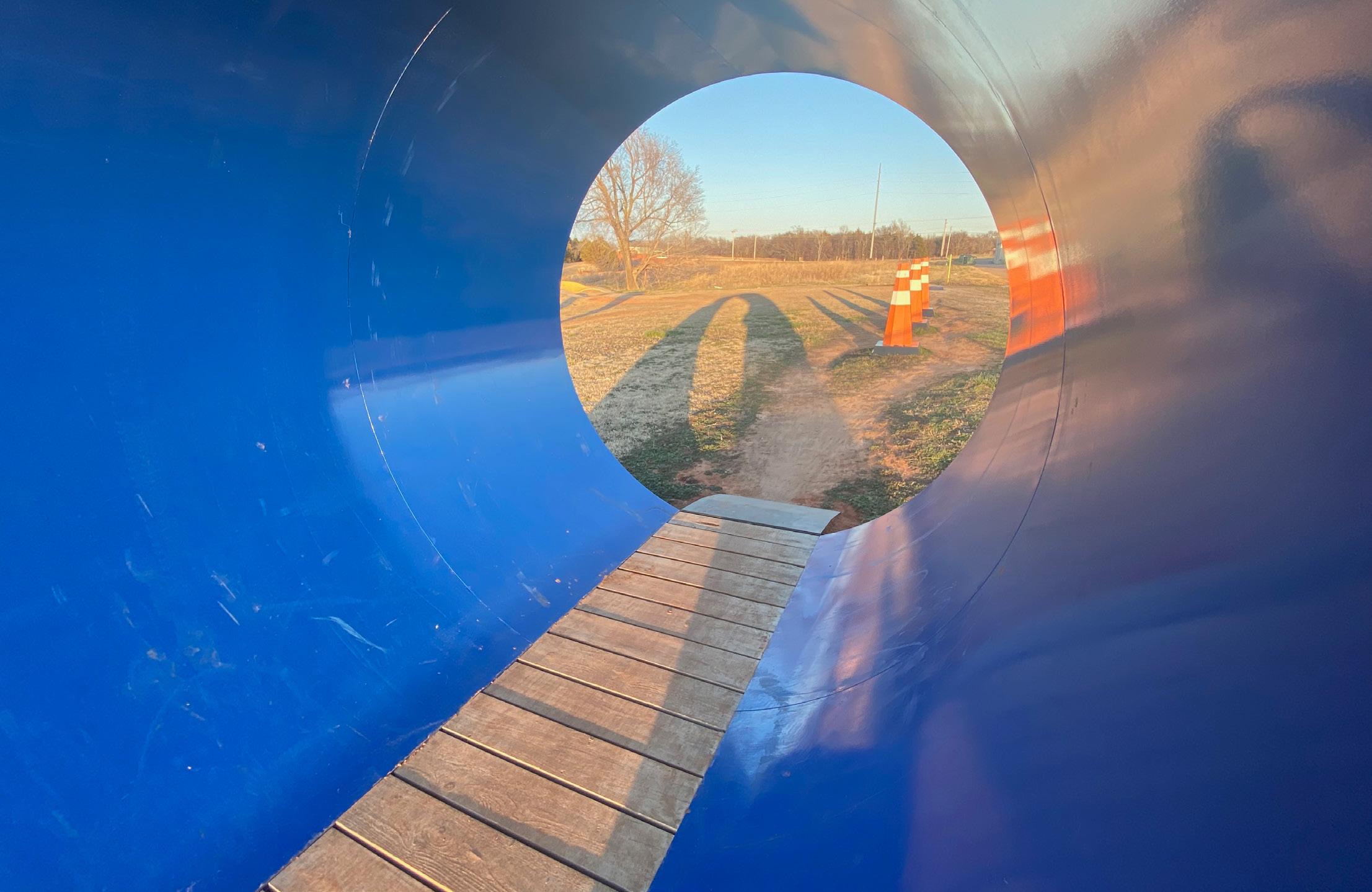COMM U N I T Y
BY: BILL MOAKLEY
Service Spotlight:
Susannah Bishop
N
orman Police Communications Supervisor Susannah Bishop hadn’t always planned on a career in law enforcement. However, plans change.
“I thought I wanted to be an accountant,” Bishop said. “The more classes I took and the more I thought about sitting in a little room by myself, looking at numbers, the more I thought it was going to drive me insane.” So, while earning her degree in law enforcement administration from the University of Oklahoma, Bishop took a job in 1990 at the Cleveland County jail. That was followed by a year and half working in an attorney’s office, and a year as a dispatcher for the University of Oklahoma Police Department. She then joined the Norman Police Department as a dispatcher. Bishop now serves as the department’s supervisor and has overseen a growing communications bureau. When she joined the department, it was her and one other person on the night shift. The day shift was staffed by a supervisor and two other officers. Now, at minimum, the department staffs a supervisor and three dispatchers for every shift. Dispatchers take non-emergency and 911 calls, as well as after-hours calls for the majority of the municipal government offices. Bishop explained the first priority for incoming emergency calls is simple. “All calls on 911 are answered the same way, ‘Norman 911 – what is the location of your emergency,” she pointed out. “We can’t send you help if we don’t know where you are. If we get nothing else out of a 911 call, if we have an address or location, we can send people.” Dispatchers then confirm the incoming phone number to ensure it is displayed correctly on the 911 screen and to have a record of the call number if officers need to call back. If it’s a LAN line (Local Area Network), a physical address is provided automatically. Cell phones ping to a tower in the area, usually within 30 seconds, which is critical. “Thirty seconds can be the difference between life and death,” Bishop said.
10 | March 2020
According to the veteran communications professional, cell phone technology has become a valuable resource for those needing assistance. “It has benefitted people getting help faster,” Bishop said. “If you saw a horrible crash 15 or 20 years ago, you had to find a pay phone or wait until you got home to call it in. Now you have a crash and 15 people around you are calling it in before you dig your phone out to call.” As beneficial as the technology can be, it can also lead to false alarms. “At least a third of our cell phone calls are accidental dials,” Bishop pointed out. “You’ve got it in your pocket or your child is playing with the phone. Even if a phone doesn’t have service, if it will turn on, it can call 911.” When Bishop is not on the clock, she can be found spending time with her kids and dogs, or if you’re up really early, she can be found working out. “I get up every morning at 4:30 and get to boot camp at 5:15,” Bishop said. “It has kept me healthy, which has helped keep me at work. I love it.”– BSM















